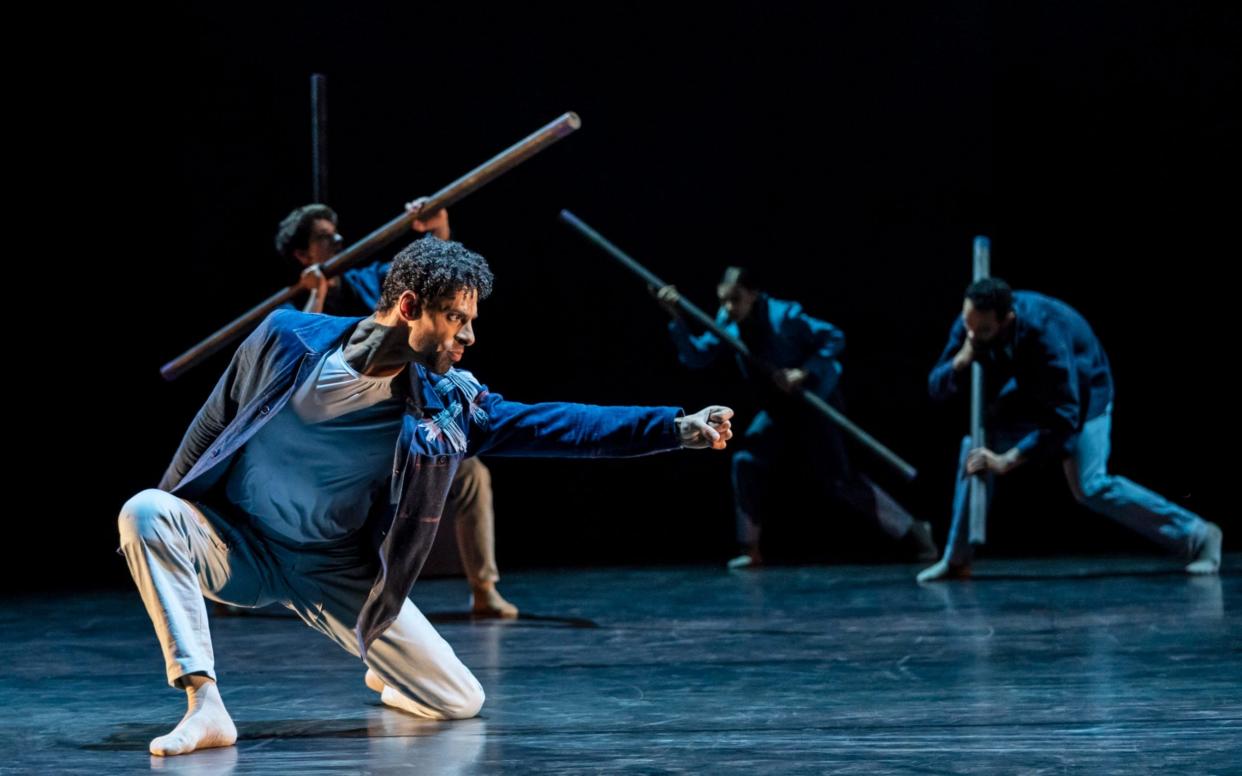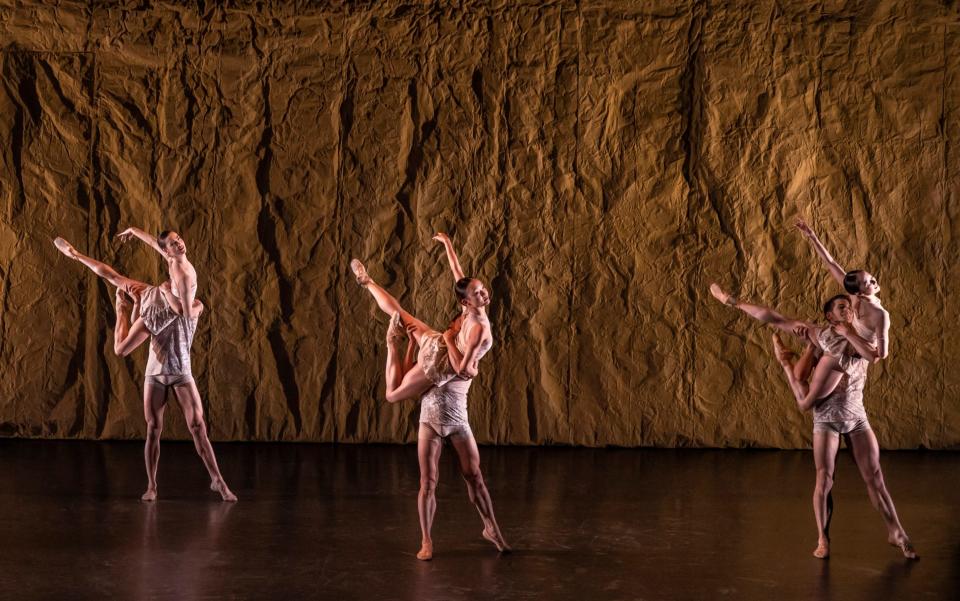Curated by Carlos, by the Birmingham Royal Ballet, was a dismal night of shallow politics

- Oops!Something went wrong.Please try again later.
- Oops!Something went wrong.Please try again later.
Never mind the pandemic’s distant rumblings, Carlos Acosta had his work cut out when he took over as director of Birmingham Royal Ballet in January 2020. His long-serving predecessor, David Bintley, had bequeathed him a repertory focused on full-length narrative ballets of varying quality that sold tickets but never strayed from the middle of the road.
Handsomely appointed though it is, the company’s home at the Hippodrome is far too big to fill, and its audience demographic is too heavily weighted (with all due respect) towards middle-aged ladies. The company performs well as a team, but sorely lacks principal dancers with star quality and strong personalities (in the past, it has nurtured the likes of Marion Tait, Joseph Cipolla, Robert Parker and Monica Zamora).
Things must change if Acosta is to have the same electric effect that Simon Rattle had when he took over the City of Birmingham Symphony Orchestra in the 1980s. I wonder whether he should consider a policy that focuses on revisiting neglected twentieth-century classics from its back catalogue (Ashton’s Les Rendezvous, for example, or Massine’s Le Boutique fantasque), rather than putting so many eggs in the risky basket of new commissions.
The past year must have been staggeringly difficult for all concerned, but one potentially positive move that has emerged is a partnership between BRB and the Birmingham Repertory Theatre. The latter offers a stage and auditorium more suited to new work than the vast Edwardian Hippodrome, and it was chosen as the venue for this welcome return to live performance, received with enthusiasm by loyal supporters.
Sentiment aside, alas, the programme was pretty dire. City of a Thousand Trades is a tribute to the creative energies of Brum, devised by the choreographer Miguel Altunaga in collaboration with the Birmingham Rep’s Madeleine Kludje. The set showed concrete blocks into which steel poles are repeatedly inserted to the accompaniment of a score by Mathias Coppens that went heavy on the percussion, channeling the drilling and banging out of which objects are manufactured.

All the while, verse by Birmingham’s poet laureate, Casey Bailey, was recited over the tannoy, emphasising the lonely experiences and sacrifices of migrant workers rather than any positive spirit of material creation. The dancing by a corps of 12 is frenetic but aimless; the men looked more at ease with the idiom than the women. Overall the effect was depressing rather than celebratory.
What followed was downright feeble. A Brazilian choreographer Daniela Cardim has dreamed up Imminent as a response – guess what – to the climate crisis, and “virtue signalling” would be too kind a description. To a thunderously brash score by Paul Englishby in the style of Malcolm Arnold, 16 dancers make imploring or alarmed gestures in front of a set showing an iceberg in which a large hole has appeared. If this is what the environmental debate is reduced to, then we are indeed on the brink of catastrophe.
The temperature rose slightly with Chacona, Goyo Montero’s response to JS Bach’s Partita No 2, in which a phalanx of dancers in black respond to the symmetry and elegance of the Baroque music. But none of this felt in any respect like a good place for Acosta’s fresh start.
Until Saturday. Tickets: brb.org.uk, 0121 245 3500

